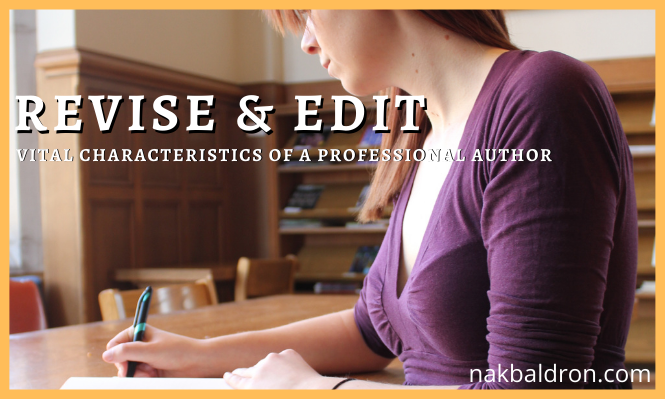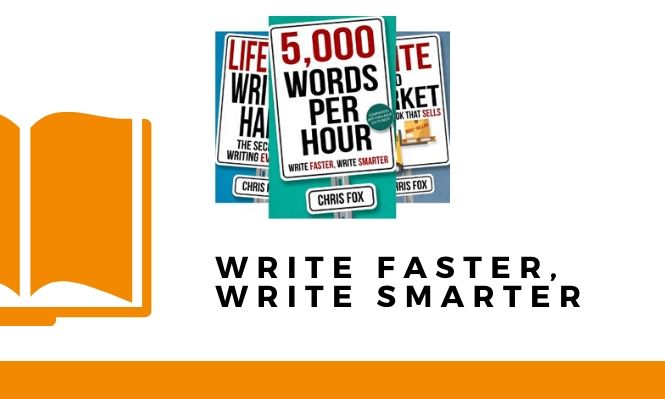The ability to revise and edit one’s own work is an essential aspect of being a professional author. Revising and editing involve reviewing and evaluating one’s writing, and making changes and improvements to enhance its clarity, coherence, and overall effectiveness.
Revising involves reviewing the structure and organization of the writing, and making changes to improve the flow and logic of the work. This can involve reordering paragraphs or sections, adding or removing content, or adjusting the tone or style of the writing.
Editing involves reviewing the mechanics of the writing, such as grammar, spelling, punctuation, and syntax, and making changes to improve the accuracy and clarity of the work. It is important to be thorough and meticulous in the editing process, as errors or mistakes can distract or confuse readers and undermine the credibility of the work.
The ability to revise and edit one’s own work requires a critical eye and attention to detail, as well as the willingness to self-assess and make changes as needed. It is an essential skill for professional authors, and one that requires continual practice and development.
Revising:
Revising your own work is an essential aspect of being a professional author. Revising involves reviewing and evaluating your writing, and making changes and improvements to enhance its clarity, coherence, and overall effectiveness.
There are several steps involved in the revising process:
Take a break: After finishing a draft, it is important to take a break and allow some time to pass before revisiting the work. This can help you approach the work with fresh eyes and a clearer perspective. Half the time it took to write the novel is usually a good rule.
Read your work out loud: Reading your work out loud can help you identify awkward or unclear passages, as well as help you identify any errors or mistakes. You can also use text-to-speech to assist with this process, which is built into Microsoft Word, and many other programs. (ctl+alt+space bar) to open TTS in MS Word.
Evaluate the structure and organization: Review the structure and organization of your work, and consider whether the order of your sections and paragraphs makes sense and flows smoothly. Consider whether any sections or paragraphs need to be added, removed, or reordered. This can mean changing sequences or possibly cutting beats form scenes.
Review the tone and style: Consider whether the tone and style of your work are appropriate and consistent throughout the piece. Make changes as needed to ensure that your writing is clear, concise, and engaging. ProWritingAid, along with many other programs will help rank your sentence variation and rank your overall piece on its reading difficulty. Some genres prefer a more simplistic writing style, while others embrace elaborate prose.
Check for errors: Review your work for errors in grammar, spelling, punctuation, and syntax, and make any necessary corrections.
Software Editing Tools:
ProWritingAid
ProWritingAid is a writing software that helps writers improve their work by providing feedback on grammar, style, and readability. The program analyzes your writing and suggests edits and improvements, making it a valuable tool for writers of all levels.
One of the key features of ProWritingAid is its grammar checker, which identifies and corrects errors in grammar, punctuation, and spelling. The program also has a style checker, which helps writers improve their writing style by identifying areas that may be too wordy or repetitive. In addition, ProWritingAid includes a readability checker, which analyzes the complexity of your writing and suggests ways to make it more accessible to your audience.
Another useful feature of ProWritingAid is its integration with popular writing software such as Microsoft Word and Google Docs. This makes it easy to use the program as you write, allowing you to make edits and improvements on the fly.
In addition to its writing tools, ProWritingAid also offers a range of resources and tutorials to help writers improve their craft. These include guides on topics such as grammar and style, as well as writing prompts and exercises to help writers practice their skills.
Overall, ProWritingAid is a comprehensive writing tool that can help writers of all levels improve their work. Whether you’re a professional writer looking to polish your writing or a beginner looking to improve your skills, ProWritingAid is an invaluable resource.
WordRake
WordRake is a tool designed to help writers improve their work by identifying and correcting unnecessary words and phrases. The program analyzes your writing and suggests edits to make it clearer, more concise, and more effective.
One of the key features of WordRake is its ability to identify and remove “weasel words,” which are words or phrases that add little value to a piece of writing. These might include words like “very,” “really,” or “quite,” which can be used to pad out a sentence without adding any meaning. WordRake also helps writers identify and remove redundant phrases, such as “at this point in time,” which can be replaced with a simpler phrase like “now.”
In addition to its editing tools, WordRake also offers a range of resources to help writers improve their craft. These include writing prompts, exercises, and guides on topics such as grammar and style.
Overall, WordRake is a valuable tool for writers looking to improve the clarity and concision of their work. Whether you’re a professional writer looking to polish your writing or a beginner looking to improve your skills, WordRake can help you take your writing to the next level.
Further Reading: Self-Editing for Fiction Writers
Self-Editing for Fiction Writers by Renni Browne is a comprehensive guide for writers looking to improve their work through self-editing. The book covers a range of topics, including grammar, style, and structure, and offers practical tips and techniques for editing your own writing.
One of the key strengths of Self-Editing for Fiction Writers is its focus on the writing process. Browne provides guidance on how to approach the editing process, from the initial stages of revision to the final stages of proofreading. She also covers common pitfalls that writers may encounter, such as overusing adverbs or relying too heavily on passive voice, and provides strategies for avoiding these mistakes.
In addition to its practical advice, Self-Editing for Fiction Writers also includes a range of exercises and prompts to help writers practice their editing skills. These include quizzes, writing exercises, and self-editing checklists, all designed to help writers improve their craft.
Twelve Major Topics:
- Show and Tell
- Characterization and Exposition
- Point of View
- Proportion
- Dialogue Mechanics
- See How It Sounds
- Interior Monologue
- Easy Beats
- Breaking Up Is Easy To Do
- Once Is Usually Enough
- Sophistication
- Voice
Self-Editing for Fiction Writers is an invaluable resource for writers looking to improve their work through self-editing. Whether you’re a professional writer looking to polish your work or a beginner looking to improve your skills, this book provides the guidance and tools you need to take your writing to the next level.
Overall, revising your own work is an essential aspect of being a professional author. It requires a critical eye and attention to detail, as well as the willingness to self-assess and make changes as needed. It is a crucial step in the writing process, and one that requires practice and development.
Become a member of Aconite Café’s Writer Tribe Patreon and join an exclusive Discord community where you can connect with like-minded writers and take your craft to the next level. Every week, I host a voice chat where I present a thought-provoking topic and answer your questions to help you deepen your understanding and improve your marketing and writing skills.
Don’t miss out on this opportunity to be part of a supportive and dynamic writing community – join today and start reaching your full potential as a writer!





